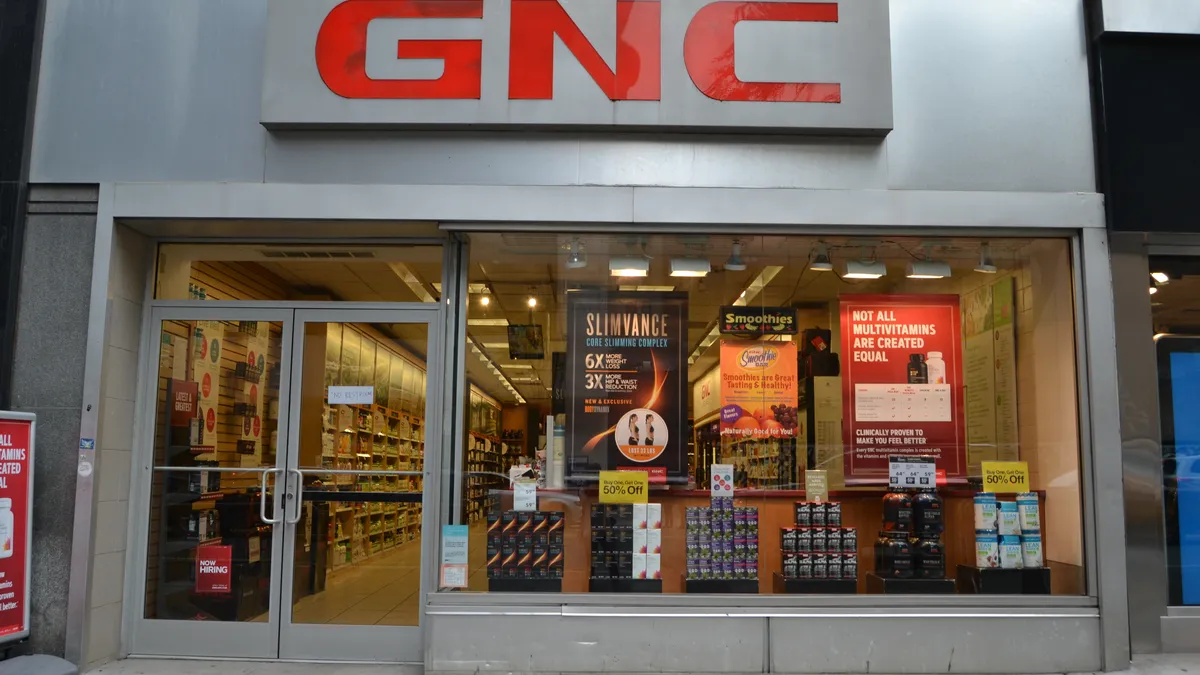Dive Brief:
- GNC filed for Chapter 11 Tuesday with plans to reorganize or, alternately, sell itself in bankruptcy.
- The supplement retailer has a plan backed by major lenders that would provide $100 million in new debtor-in-possession financing, as well as exit financing for a reorganization that would turn over ownership to lenders.
- The retailer said in a press release that it plans to close 800 to 1,200 of its stores while also investing in its omnichannel capabilities and branding. The company anticipates exiting Chapter 11 in the fall.
Dive Insight:
GNC's bankruptcy filing follows years of distress and rolling efforts to stabilize its finances.
The retailer's revenue has declined for years, and it has posted a positive profit only two years out of the last five. In the period ending March 31, GNC's revenue took a hit of 16% year-over-year, and it racked up a $166 million operating loss. The company's debt was downgraded by S&P to CC in late March, as the COVID-19 pandemic was accelerating and GNC signaled it probably wouldn't generate enough cash from its business to make a major debt payment.
The pandemic created multiple complications for GNC. Early on, the retailer kept its locations open, including in states that had closure orders for non-essential retail businesses.
The company, according to internal memos, deemed itself essential because it carried some food and beverage items. Not every state agreed with this self-assessment, and several employees told Retail Dive they felt unsafe working the retailer's stores amid the pandemic, especially as they said the company wasn't providing sanitation supplies at the time. GNC would later temporarily close around 40% of its stores in the U.S. and Canada owing to local government restrictions.
Amid the distress, the company got itself a little bit of breathing room in May on a looming debt maturity, but it wasn't enough to keep it out of bankruptcy.
GNC's reorganization plan is a sign that major stakeholders see value in its underlying business, despite continued disruption from the pandemic across the retail world. They have agreed to take over the company or, in an alternate scenario, support it in bankruptcy through a sale — with a price set for the business at $760 million — in an auction process.
The company put a positive spin on its bankruptcy, painting it as an opportunity to continue its store optimization process and invest in its future. GNC said in the press release announcing its bankruptcy that it planned to launch its buy online, pickup in-store (BOPIS) option later this year and "has a robust innovation pipeline of ingredients and products to bring to market over the next three years."
The company's footprint is still giant, with 5,200 stores in the U.S. (1,600 of which are store-within-a-store concepts at Rite Aid locations). That means even after it pares its footprint in bankruptcy, it will remain quite large.















